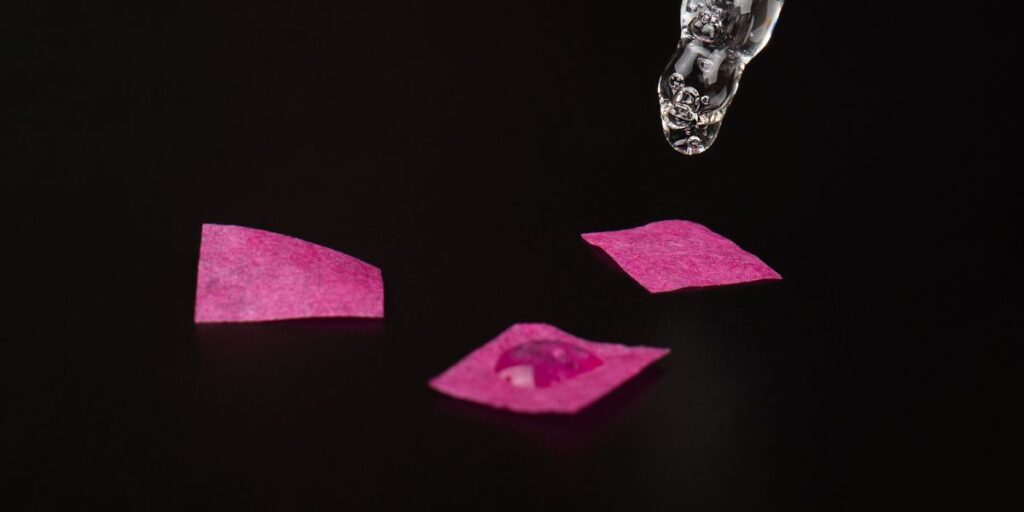The Short and Long-Term Effects of Hallucinogens

Hallucinogens, also known as psychedelics, cause hallucinations. They have been used in tribal rituals for centuries and studied by scientists in labs.
Using hallucinogens can lead to long-term effects, even if you don’t use them often. Abusing these substances can lead to negative consequences that can last for a long time. It is important to be aware of the risks associated with hallucinogen use, as they can impact anyone who uses them.
At first, most people use hallucinogens for fun, but they can become a way to self-medicate deeper problems. Many people don’t realize that developing a psychological dependence on hallucinogens and their psychedelic effects is likely and dangerous.
What Are Hallucinogens?
Hallucinogens are drugs from plants or labs that alter a person’s reality and their sense of time and space. Visual distortions are the primary impact, with additional experiences of unreal sights, sounds, scents, and sensations common among individuals.
Types of Hallucinogens
There are two primary categories of hallucinogenic substances: traditional hallucinogens and dissociative drugs. Each category includes various forms, differentiated by their sources and effects.
Essentially, classic hallucinogens alter your perception of experiences, while dissociative drugs alter the experiences themselves.
Classic Hallucinogens
These substances can lead to heightened senses, intense feelings, and a blending of sensory experiences. In certain societies, these substances are utilized during traditional and spiritual rituals, as they are thought to aid in reaching a state of enlightenment or self-awareness.
Classic hallucinogens include:
- Ayahuasca
- Psilocybin mushrooms (magic mushrooms)
- D-lysergic acid diethylamide (LSD)
- N, N-dimethyltryptamine (DMT)
- Salvia divinorum (salvia)

Dissociative Hallucinogens
Dissociative substances produce changes in consciousness that result in feelings of detachment or a sense of being separate from one’s body. These drugs create a state similar to sensory isolation rather than altered sensory experiences.
Dissociative drugs:
- Phencyclidine (PCP)
- Dextromethorphan (DXM)
- Ketamine
Most classic hallucinogenic drugs come from natural sources, while most dissociative drugs are made entirely in labs.
PCP is a Schedule II drug, while ketamine is a Schedule III drug because of its uses. In the United States, most hallucinogens are illegal. PCP, ketamine, and sometimes magic mushrooms are exceptions to this rule. Some cities allow the use of certain mushrooms, like magic mushrooms, for spiritual and healing purposes, even though it is banned.
Some people incorrectly consider MDMA a hallucinogen. Scientists classify MDMA as an entactogen or empathogen. Entactogens and empathogens elicit strong emotions and increased reactions to both internal and external stimuli without inducing visual disruptions or hallucinations. The practice of microdosing MDMA for therapeutic reasons is a developing area of research that differs from traditional hallucinogens.
Hallucinogen Addiction
Hallucinogens are not physically addictive, but their psychological and behavioral effects can make people want to use them repeatedly. Many people may become mentally dependent without being physically addicted.
It is fascinating that LSD can lead users to build up a tolerance to various hallucinogens. You need high doses of the drug to feel its effects. This can be risky because psychedelics have unpredictable effects.
Only PCP and ketamine have been shown to have physical addiction potential. Even using them just once or twice can lead to addiction and withdrawal symptoms. People who use PCP and ketamine have more intense physical and mental withdrawal symptoms than users of other psychedelic drugs.
Although they don’t typically result in physical addiction, regularly misusing hallucinogens can exacerbate or contribute to mental disorders. Using drugs or alcohol regularly, especially those that affect the mind, can show deeper mental health and emotional problems.
Hallucinogens Effects
Hallucinogenic drugs affect the brain through their active ingredients. Scientists are studying how these chemicals work but have figured out how they affect the brain.
The majority of traditional hallucinogens impact serotonin release and influence how the brain processes signals and communication within the body.
Serotonin is responsible for managing the following:
- Emotional state
- Thermal regulation
- Perception of senses
- Sex drive
- Slumber
- Hunger
- Digestive regulation
Substances that cause dissociation impact serotonin levels but mainly bind to glutamate, a neurotransmitter responsible for transmitting brain signals.
Glutamate has a part in regulating:
- Sensing and reacting to discomfort
- Responses to environmental elements and triggers
- Emotional reactions
- Understanding and learning
- Memory and recall
Hallucinogenic drugs can cause a “trip,” which is a high that includes seeing things that aren’t real. If the experience is scary or unpleasant, people call it a “bad trip.”
The effects of different hallucinogens depend on the amount taken, how it is consumed, and the person using it. Factors such as mental state and other health conditions can also impact the overall experience. Using drugs in unfamiliar or unsafe environments or around unfamiliar people increases the likelihood of having a bad trip.
If you wouldn’t find a situation fun when you’re not under the influence, you probably won’t enjoy it while hallucinating.
Short-Term Effects of Hallucinogens
Hallucinogens can cause various short-term effects depending on the specific drug, individual, dosage, and concurrent use of other substances. These effects can vary widely and may include changes in perception, mood, and cognition. The place and surroundings where the drug is taken can also affect the short-term effects felt.
It is important to be aware of these potential adverse effects and to use hallucinogens responsibly. The main effects are mental and physical reactions that happen because of chemical interactions in the brain.
How long the trip lasts can also vary. For example, LSD can produce effects and feelings for 12 hours, while the effects of DMT last about 15 minutes.
If two individuals ingest the same substance in the same amount, their reactions will vary and not be identical.
The short-term effects of hallucinogens include:
- Accelerated heartbeat
- Elevated blood pressure
- Fast-paced breathing
- Heightened body temperature
- Perspiration
- Vibrant, shifting hues and designs
- Hallucinations
- Profound, significant emotions
- Altered perception of time
- Strange, intrusive thoughts
- Feeling euphoric
- Feeling fearful or suspicious
- Anxiety
- Parched mouth
- Awkwardness
- Fixating on something
- Disorientation
- Feeling lightheaded
- Scrambled thoughts
- Feeling detached from your own body
- Sensing that your surroundings are unreal
- Feeling nauseous
- Paralysis
- Feeling terror-stricken
- Becoming agitated
- Urge to behave violently
- Thoughts of self-harm
There is no way to stop the effects of hallucinogens. To help lessen intense feelings, find a quiet and dark area to relax until the effects decrease. The best way to recover from a bad trip is simply waiting it out.
Long-Term Effects of Hallucinogens
The long-term effects of hallucinogens impact both the body and mind. Drugs that continuously alter chemical interactions and behaviors can lead to permanent problems.
The enduring impacts of hallucinogens can vary as much as their immediate effects, shaped by factors such as the duration and severity of use, the particular substance, and its potency, and the presence of any pre-existing health issues.
Long-term effects of hallucinogenic drugs may include:
- Craving the drug
- Compulsive drug-seeking behaviors
- Building tolerance
- Memory loss
- Difficulty speaking
- Coordination impairment
- Fluctuations in weight
- Feelings of despair
- Feelings of unease
- Symptoms of withdrawal
- Suicidal ideation
Hallucinogen Persisting Perception Disorder
Hallucinogen Persisting Perception Disorder (HPPD) is a long-lasting, unpredictable condition that may occur suddenly, years after the last use of acid.
HPPD is characterized by a range of sporadic symptoms such as:
- Erratic emotional states
- Chaotic thinking processes
- Visual disruptions
- Recurrent memories
- Suspiciousness
Without a history of using hallucinogens, these symptoms could indicate a stroke, brain tumor, or emerging mental illness. Some people with HPPD find relief by using anti-psychotic medications and behavioral therapy to manage their symptoms.

Hallucinogenic Withdrawal Symptoms
Withdrawal effects from hallucinogenic drugs consist mostly of psychological and behavioral symptoms. However, dissociatives such as PCP and ketamine can also cause physical symptoms.
Typical symptoms of withdrawal from psychedelic drugs encompass:
- Exhaustion
- Agitation
- Emotional fluctuations
- Yearning for the substance
- Nervousness
- Episodes of panic
- Perspiration
- Fluctuations in hunger levels
- Loss of memory
- Alterations in pulse and blood pressure
- Tremors or spasms
- Heightened sensitivity to light and noise
- Aggressive and invasive thoughts
- Suicidal ideation
Withdrawing from hallucinogens can lead to severe emotional distress and impulsive behaviors that may be dangerous. One significant advantage of residential treatment is having medical detox and continuous support to help manage all withdrawal symptoms and prevent harmful actions stemming from negative thoughts. Experts in these settings can also identify typical symptoms of HPPD and develop a long-term management plan.
Hallucinogen Treatment for Abuse and Addiction
Hallucinogen abuse illustrates how underlying issues can quickly evolve into risky behaviors and addiction.
At Northridge Addiction Treatment Center, we address addiction by looking at both the immediate effects and the root causes.
If you are concerned about withdrawal symptoms, we provide supervised medical detox. This includes around-the-clock medical care to ensure your safety and well-being.
While you’re at our treatment center, our team will make a treatment plan just for you. We will tailor this plan to meet your specific needs. Additionally, they will teach you coping skills to help you succeed in long-term recovery.
Our goal is to plant the seeds of healing that will endure for a lifetime and empower you to achieve your maximum potential. Contact us now to speak with one of our compassionate treatment specialists.
Find Meaningful Recovery
Our caring and compassionate specialists are eager to help you comfortably navigate this journey to recovery. Our individualized treatment plan, programs, and therapies may be a perfect match for you or your loved one. Let us assist you in living the happy life you deserve. It starts with a phone call.




